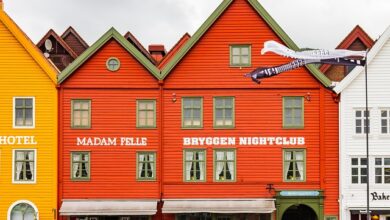Golden Visa and Residency by Investment in Belgium

The concept of a “Golden Visa” or residency by investment has gained significant traction worldwide as countries seek to attract foreign investors, entrepreneurs, and high-net-worth individuals. While Belgium does not have a formalized “Golden Visa” program like Portugal or Spain, it does offer pathways for obtaining residency through investment, business establishment, or other financial contributions. This article explores the options available for acquiring residency in Belgium through investment, the requirements, benefits, and considerations for potential applicants.
1. Overview of Residency by Investment in Belgium
Belgium provides several avenues for non-EU nationals to gain residency, including:
- Self-Employment or Entrepreneurship: Establishing a business or investing in the Belgian economy.
- Highly Skilled Worker Programs: Attracting professionals with specialized skills.
- Real Estate Investment: Although direct real estate investment doesn’t guarantee residency, owning property can support applications under certain categories.
- Family Reunification: Investors may bring family members once they secure residency.
While Belgium’s approach is less straightforward than traditional Golden Visa programs, it remains an attractive destination due to its central location in Europe, strong economy, and access to the Schengen Area.
2. Key Pathways to Residency Through Investment
A. Starting a Business or Becoming Self-Employed
One of the most common ways to obtain residency in Belgium is by establishing a business or becoming self-employed. The government encourages entrepreneurship that contributes to the local economy.
Requirements:
- Business Plan: Submit a detailed business plan demonstrating the viability and economic impact of your venture.
- Minimum Investment: While there’s no fixed minimum amount, investments typically range from €50,000 to €100,000+, depending on the industry and scale of operations.
- Job Creation: Your business should ideally create jobs or stimulate economic growth in the region.
- Proof of Financial Stability: Show sufficient funds to sustain yourself and your business without relying on social welfare.
Benefits:
- Eligibility for a Type D Long-Stay Visa , which allows you to live and work in Belgium.
- Access to healthcare, education, and other public services.
- Potential pathway to permanent residency after five years and citizenship after ten years (subject to conditions).
Challenges:
- Approval depends on the quality of your business plan and its alignment with national priorities.
- Regular audits and compliance checks are required to maintain status.
B. Highly Skilled Migrant Program
Belgium offers a streamlined process for highly skilled workers and executives who wish to relocate to the country. This option is particularly appealing for professionals employed by multinational companies or startups.
Requirements:
- Employment Contract: Secure a job offer from a Belgian employer or transfer within a company.
- Salary Thresholds: Earn a salary above a specific threshold (adjusted annually), ensuring you qualify as a highly skilled worker.
- Professional Qualifications: Possess relevant degrees, certifications, or experience in your field.
Benefits:
- Fast-track processing for visas and permits.
- Ability to include family members in the application.
- Flexibility to change employers while maintaining residency rights.
Considerations:
- Limited to individuals with specialized expertise or senior roles.
- Not suitable for passive investors or retirees.
C. Real Estate Investment
Unlike some European countries, Belgium does not grant residency solely based on real estate purchases. However, owning property can strengthen your application if combined with other qualifying activities, such as starting a business or applying for retirement visas.
Key Points:
- Property ownership demonstrates financial stability and ties to the country.
- Investments in commercial properties or development projects may enhance eligibility for entrepreneur visas.
- Rental income from Belgian properties can supplement living expenses during residency.
D. Passive Income and Retirement Visas
Non-EU citizens with substantial passive income (e.g., pensions, dividends, or rental income) can apply for residency in Belgium. This route is ideal for retirees or financially independent individuals.
Requirements:
- Proof of Sufficient Income: Demonstrate stable monthly income exceeding the average Belgian wage (~€2,000–€3,000 per month).
- Health Insurance Coverage: Obtain private health insurance valid in Belgium.
- No Dependence on Social Welfare: Ensure you won’t rely on state benefits.
Benefits:
- Freedom to reside in Belgium without mandatory employment.
- Access to high-quality healthcare and infrastructure.
- Opportunity to explore cultural and leisure opportunities.
Limitations:
- Does not grant work authorization unless additional permits are obtained.
- Renewal depends on continued proof of financial independence.
3. Advantages of Residency in Belgium
Obtaining residency in Belgium comes with numerous advantages, making it an attractive choice for investors and their families.
A. Strategic Location
- Situated at the heart of Europe, Belgium offers easy access to major cities like Paris, London, Amsterdam, and Frankfurt.
- Membership in the Schengen Area allows visa-free travel across 26 European countries.
B. High Quality of Life
- Excellent healthcare system ranked among the best globally.
- World-class education institutions offering multilingual programs.
- Vibrant cultural scene, historic landmarks, and diverse cuisine.
C. Stable Economy
- Strong GDP growth and low inflation rates contribute to economic stability.
- Thriving sectors include technology, pharmaceuticals, logistics, and finance.
D. Family-Friendly Policies
- Comprehensive childcare facilities and family allowances.
- Inclusive schooling options, including international schools.
4. Steps to Apply for Residency Through Investment
Here’s a general outline of the application process:
- Choose the Right Pathway: Decide whether you’ll pursue residency through entrepreneurship, employment, or passive income.
- Prepare Documentation:
- Valid passport
- Proof of investment/business plan
- Financial statements/bank guarantees
- Health insurance coverage
- Criminal record clearance
- Submit Application:
- Apply for a Long-Stay Visa (Type D) at the Belgian embassy or consulate in your home country.
- Include all supporting documents and pay applicable fees.
- Attend Interviews: Some cases require interviews to assess the legitimacy of your plans.
- Receive Approval: Upon approval, you’ll receive a visa allowing entry into Belgium.
- Register Locally: Within eight days of arrival, register at your local municipality to obtain a residence permit.
- Renew Permits: Most initial permits are valid for one year and renewable annually, subject to compliance.
5. Costs Involved
While Belgium’s residency programs are relatively affordable compared to other EU nations, costs vary depending on the chosen pathway.
| Expense | Estimated Cost |
|---|---|
| Long-Stay Visa Fee | €180–€300 |
| Business Setup Costs | €50,000+ |
| Legal/Consultancy Fees | €2,000–€5,000 |
| Health Insurance | €100–€500/month |
| Municipal Registration Fee | €50–€200 |
6. Comparison with Other EU Golden Visa Programs
Belgium’s residency-by-investment framework differs from more structured programs like those in Portugal, Greece, or Malta. Below is a comparison:
| Country | Minimum Investment | Residency Benefits | Path to Citizenship |
|---|---|---|---|
| Belgium | €50,000+ (business-focused) | Central location, high quality of life | 5 years residency → 10 years citizenship |
| Portugal | €280,000+ (real estate) | Schengen access, tax incentives | 5 years residency → citizenship |
| Greece | €250,000+ (real estate) | Affordable entry point, Mediterranean lifestyle | 7 years residency → citizenship |
| Malta | €700,000+ (donation/invest) | Direct citizenship option | Immediate citizenship |



